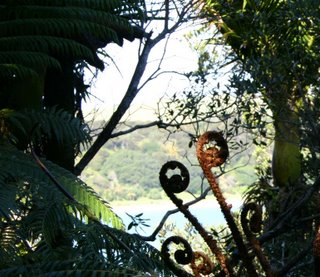
"Reality is relative to the measuring apparatus."
Scientific American has this summary of some the latest books on the debate.
An excerpt from Richard Dawkins' book The God Delusion:
Fundamentalism And The Subversion of Science.
Fundamentalists know they are right because they have read the truth in a holy book and they know, in advance, that nothing will budge them from their belief. The truth of the holy book is an axiom, not the end product of a process of reasoning. The book is true, and if the evidence seems to contradict it, it is the evidence that must be thrown out, not the book. By contrast, what I, as a scientist, believe (for example, evolution) I believe not because of reading a holy book but because I have studied the evidence. It really is a very different matter. Books about evolution are believed not because they are holy. They are believed because they present overwhelming quantities of mutually buttressed evidence. In principle, a reader can go and check that evidence. When a science book is wrong, somebody eventually discovers the mistake and it is corrected in subsequent books. That conspicuously doesn't happen with holy books.
Maybe scientists are fundamentalist when it comes to defining in some abstract way what is meant by 'truth', but so is everybody else. I am no more fundamentalist when I say evolution is true than when I say it is true that New Zealand is in the southern hemisphere. We believe in evolution because the evidence supports it, and we would abandon it overnight if new evidence arose to disprove it. No real fundamentalist would ever say anything like that.
It is all too easy to confuse fundamentalism with passion. I may well appear passionate when I defend evolution against a fundamentalist creationist, but this is not because of a rival fundamentalism of my own. It is because the evidence for evolution is overwhelmingly strong and I am passionately distressed that my oppenent can't see it - or, more usually refuses to look at it because it contradicts his holy book. My passion is increased when I think about how much the poor fundamentalists, and those whom they influence, are missing. The truths of evolution, along with many other scientific truths are so engrossingly fascinating and beautiful; how truly tragic to die having missed out on all that! Of course that makes me passionate. How could it not? But my belief in evolution is not fundamentalism, and it is not faith, because I know what it would take to change my mind, and I would gladly do so if the necessary evidence were forthcoming.Or this from Sam Harris, author of the new book, Letter to a Christian Nation:
The conflict between science and religion is reducible to simple fact of human cognition and discourse; either a person has good reasons for what he believes, or he does not. If there were good reasons to believe that Jesus was born of a virgin, or that Muhammad flew to heaven on a winged horse, these beliefs would necessarily form part of our rational description of the universe. Everyone recognizes that to rely upon "faith" to decide specific questions of historical fact is ridiculous—that is, until the conversation turns to the origin of books like the Bible and the Koran, to the resurrection of Jesus, to Muhammad's conversation with the archangel Gabriel, or to any other religious dogma. It is time that we admitted that faith is nothing more than the license religious people give one another to keep believing when reasons fail.
I agree that taking something on someone's word, or blind faith in a concept is dangerous. Action without purpose ends up becoming ritual. Rituals become dogmas, and the whole spiral carries on for generations. But what these "scientists" need to understand, in their endless quest for proof and evidence to support the existence of something that may be beyond understanding, is that individual direct experience is as much evidence as one needs. But the experience may only be available to one who has tried the "experiment". I don't need a license to believe something, regardless of whether it is reasonable or not. And I consider myself a "reasonable" person. There may be other, or different scientific methods or experiments that have stood the test of time. Only when we can accept that this universe may not be all there is, will we be able to see a wider perspective, and tolerate those who believe in that which cannot be proven. For those who have gone beyond, it is not necessary either to be believed by anyone or to prove anything. It is the scientists that need to prove. They wave their "scientific method" around with as much fervour as those who wave their holy books.
As Evolution and Intelligent Design battle for the minds of the next generations, perhaps it could be that evolution is an intelligent design? Perhaps it is precisely because we can see the proof for species evolving, it will motivate us to seek more proof, however that comes, for the reasons why. Could something as intricately interwoven and beautiful as this universe be as random as a big bang?
Some thoughts to ponder as I take my daily walk, and listen. Much the same as this contributor to NPR's This I Believe series. More listening can only help us to communicate better.
And that has to be a good thing.




No comments:
Post a Comment